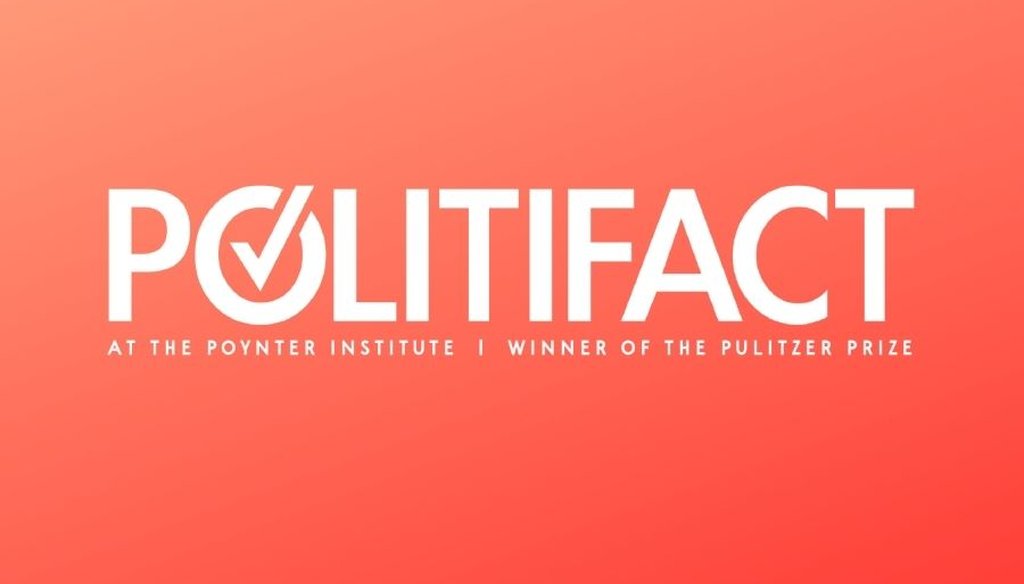Stand up for the facts!
Our only agenda is to publish the truth so you can be an informed participant in democracy.
We need your help.
I would like to contribute

The House of Representatives worked into the night as health care was debated back in November.
The issue of 2009 here at PolitiFact was undoubtedly health care. President Barack Obama campaigned on overhauling the health care system, and with Democratic majorities in the House and Senate, he made health care legislation a top priority for his first year. The Republican minority was just as committed to stopping it, criticizing Democratic plans as unwanted and ineffective government intrusions.
The fight over the legislation isn't over. The Senate passed a bill on the morning of Christmas Eve. But 2010 promises more action as the House and Senate versions are reconciled, and Congress votes on the issue one more time.
As we've said before, our Truth-O-Meter ratings here at PolitiFact are about journalism, and not meant for social science. We select facts to check based on our news judgment. Still, it's interesting to look at how the ratings have broken down this year when it comes to health care. We fact-checked more than 160 statements about health care in 2009, and a lot of them were wrong.
Among the items we've checked on health care, here's how the ratings broke down:
True 14.7 percent
Mostly True 10.3 percent
Half True 19.2 percent
Barely True 16 percent
False 30.1 percent
Pants on Fire 9.6 percent
(Total does not equal 100 percent due to rounding.)
Here's some of the most notable distortions from the health care debate this year.
•
Not a government takeover of health care.
The Democratic plans would leave the current system of private insurance in place while increasing regulation for insurance companies, requiring everyone to buy health insurance, and providing more subsidies for low-income people. One aspect that was hotly debated was a public option, a health insurance plan that would be run by the government. People could choose whether to enroll in the public option. (An estimated 12 million would, according to the Congressional Budget Office.) Republicans, though, consistently portrayed the entire plan as government-run. House Republican leader John Boehner, for example, said, "
Forcing Americans off of their current health coverage
and onto a government-run plan isn't the answer, but that's exactly what the Democrats' plan would do." We rated that statement False. On Christmas Eve, the Senate finally voted on a plan that does not include a public option, and it appears unlikely that a public option will be included in the final bill.
•
No death panels for Granny.
The death panel rumor sprouted from a small clause in the health care bill involving Medicare. The new rule said Medicare would pay for a doctor's visit for the purpose of end-of-life planning, such as discussions of living wills or hospice care. Opponents equated that with
lessons in how to kill yourself
, but every expert on health care for the elderly that we consulted said the idea was ridiculous. Later, opponents tried to connect "death panels" to the Independent Medicare Advisory Council (IMAC), a board that makes recommendations on payments for various services covered by Medicare. But that board would not judge individual patients to determine whether they qualified for care. Former Alaska Gov. Sarah Palin said that seniors and the disabled "will have to stand in front of
Obama's 'death panel'
so his bureaucrats can decide, based on a subjective judgment of their 'level of productivity in society,' whether they are worthy of health care." We rated that Pants on Fire. PolitiFact readers later voted "death panels" as the
Lie of the Year
.
•
No new benefits for illegal immigrants.
One of the most dramatic moments of this year's debate was when Republican Rep. Joe Wilson of South Carolina shouted "
You lie
!" at President Obama during an address to a joint session of Congress. Obama had said "the reforms I’m proposing would not apply to those who are here illegally." We found that Democratic plans did not make changes to the way illegal immigrants are currently treated in the health care system. So we rated Wilson's outburst as False. Republicans countered by saying the Democratic plan wasn't tough enough in verifying the identity of illegal immigrants to prevent them from fraudulently obtaining benefits. We checked a statement from the House Republican Conference, "Nothing in any of the Democrat bills would require individuals to
verify their citizenship
or identity prior to receiving taxpayer-subsidized benefits." We rated that Half True.
•
Distortions about health insurance companies.
Health insurance companies became the target of many Democrats in the long fight for reform. But when we fact-checked claims about health insurers, we often found exaggerations. In July, President Obama said health insurance companies were "
making record profits, right now
." We reviewed their public filings and found that profits were actually down from previous highs, so we rated his statement False. The advocacy group Health Care for America Now blasted insurers for
paying their CEOs $24 million
a year. We found the group was cherry-picking the highest example and that the average of others is considerably lower — just under $4 million. We rated the statement Barely True. The same group said that health insurers
deny 1 out of 5 treatments
prescribed by doctors. We found that statement was based on one study that included claims that were later approved, and other studies found much lower denial rates. (Between 3 and 7 percent is a better estimate.) We rated their statement False. Finally, Obama told a story of a man who was denied cancer treatment because he hadn't reported gallstones that he didn't know about. "They delayed his treatment, and
he died because of it
," Obama said. Actually, the man fought his insurer, received treatment, and died three and half years later. We rated Obama's statement False.
•
How much will it cost?
One of the most difficult issues to cover in the debate on health care was cost. There's lots of difference of opinion among respected economists about how various cost-cutting proposals in the plan will unfold, and even the best of projections are highly speculative. When Obama said that health care reform plans being considered in Congress "
will finally reduce the costs of health care
," we rated that Half True. Some projections show a slight rise, even with increased efficiency, because approximately 30 million of the uninsured will get coverage and receive regular care. Opponents of the plan, however, tended to cherry-pick the worst numbers from reports that looked at various scenarios. That's why we gave a rating of Barely True to a statement from Republican Rep. Mike Pence, who said families "will be
forced to spend an additional $2,100 a year
to keep their current health care." That's only true for the roughly 8 percent of the market that purchases nongroup plans through the exchange and who don't receive a federal health insurance subsidy. According to the CBO, the vast majority of working families -- who get their insurance through a large employer -- would actually see a slight (very slight) decrease in premiums.
Our Sources
See individual items for sources.

























































